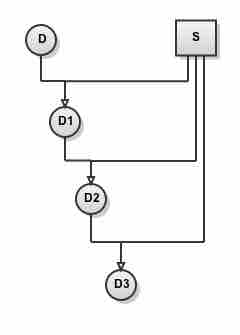An incest taboo is any cultural rule or norm that prohibits sexual relations between relatives. All human cultures have norms regarding who is considered suitable and unsuitable as sexual or marriage partners. Usually certain close relatives are excluded from being possible partners. Little agreement exists among cultures about which types of blood relations are permissible partners and which are not. In many cultures, certain types of cousin relations are preferred as sexual and marital partners, whereas others are taboo.
One potential explanation for the incest taboo sees it as a cultural implementation of a biologically evolved preference for sexual partners without shared genes, as inbreeding may have detrimental outcomes . The most widely held hypothesis proposes that the so-called Westermarck effect discourages adults from engaging in sexual relations with individuals with whom they grew up. The existence of the Westermarck effect has achieved some empirical support. The Westermarck effect, first proposed by Edvard Westermarck in 1891, is the theory that children reared together, regardless of biological relationship, form a sentimental attachment that is by its nature non-erotic.

Inbreeding
An intensive form of inbreeding where an individual S is mated to his daughter D1, granddaughter D2 and so on, in order to maximise the percentage of S's genes in the offspring. D3 would have 87.5% of his genes, while D4 would have 93.75%.
Another school argues that the incest prohibition is a cultural construct that arises as a side effect of a general human preference for group exogamy. Intermarriage between groups construct valuable alliances that improve the ability for both groups to thrive. According to this view, the incest taboo is not necessarily a universal, but it is likely to arise and become stricter under cultural circumstances that favor exogamy over endogamy; it likely to become more lax under circumstances that favor endogamy. This hypothesis has also achieved some empirical support.
Societies that are stratified often prescribe different degrees of endogamy. Endogamy is the opposite of exogamy; it refers to the practice of marriage between members of the same social group. A classic example is seen in India's caste system, in which unequal castes are endogamous. Inequality between ethnic groups and races also correlates with endogamy. Class, caste, ethnic and racial endogamy typically coexists with family exogamy and prohibitions against incest.